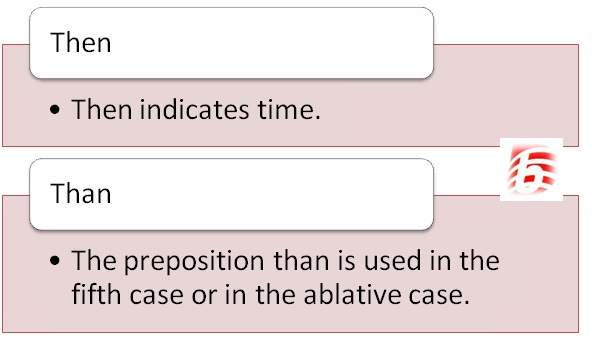Then vs Than in English Grammar
Understanding the distinction between then and than in English grammar is crucial because these two words are often mistakenly considered as one and the same. However, they are not the same and have different meanings. Then is an adverb, typically indicating past tense, and sometimes future tense as well. Than, on the other hand, is a preposition and conjunction used before the second part of a comparison. Both then and than have their origins in Old English, and the word then is also used in phrases, such as “then and there.”
What does Then mean?
According to the Oxford English Dictionary, then means “at that time; at the time in question.” The following sentence demonstrates how the word then indicates the sense of “at that time”:
– Then I heard a loud noise.
In this sentence, the word then simply indicates the time:
– I was young then.
Here, the word then refers to the past when the speaker was younger than he is now.
Sometimes, the word then is used to provide additional information about something, as in the sentence:
– He is feeble now and then he suffers from high blood pressure.
In such cases, the conjunction “and” is also present. Then can also be used to end dialogues, as in the sentence “well then, I shall leave.”
What does Than mean?
The preposition than is used in the fifth case or the ablative case, as in the following sentence:
– The king is weaker than his opponent.
In this sentence, the word than is used just before the second part of the comparison made between the king and his opponent. Interestingly, the word than is sometimes used to show that one incident has happened after another, as in the sentence:
– No sooner I entered my house than I heard the telephone ring.
What is the difference between Then and Than in English Grammar?
- Then is an adverb, while Than is a preposition and a conjunction. Than is mostly used in the comparative form.
- Then indicates time, whereas the preposition than is used in the fifth case or the ablative case. This is the main difference between the two words then and than.
- The word than is sometimes used to show that one incident has happened after another.
- The word then is sometimes used in the sense of “at that time.”
- Sometimes, the word then is used to suggest additional information about something.
- Then is used to end dialogues.
One must carefully use the two words than and then according to the context. This can only be done if one clearly understands the difference between then and than in English grammar.
